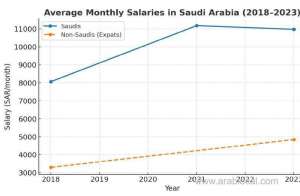Saudi Arabia has introduced sweeping new regulations for food trucks and mobile vending carts, including a ban on operations after midnight, mandatory surveillance cameras, and strict location restrictions. The move aims to improve food safety, support investment, and protect public health, aligning with national goals for regulatory development and commercial growth.
New Regulations for Food Trucks and Mobile Carts
Saudi Minister of Municipal and Rural Affairs and Housing, Majed Al-Hogail, has approved updated municipal requirements for mobile food carts and vending trucks. These include:
- Mandatory installation of surveillance cameras inside all carts
- Ban on operating after 12:00 AM, unless a 24-hour permit is issued
- A 180-day correction period for existing vendors to comply
Location-Based Restrictions
The regulations explicitly prohibit vending in certain high-risk or disruptive locations, including:
- Traffic lights, road intersections, and entrances/exits of main or secondary roads
- Near police, Civil Defense, ambulance, or traffic locations
- Parking spaces for people with disabilities
- In front of emergency exits, gas stations, or evacuation zones
- Residential neighborhoods and areas not designated by the municipality
Parking near environmental pollutants such as waste dumps, sewage sites, or gas emissions is also prohibited.
Operational Restrictions and Prohibited Activities
The rules include strict operational guidelines, such as:
- Smoking, external loudspeakers, and mobile speakers are banned
- Food preparation must take place inside the cart only
- Separate carts are required if using charcoal or firewood
- Provision of tobacco products is completely banned
Licensing and Surveillance Requirements
Each person is allowed to hold only one license for a mobile cart or trailer across the Kingdom. Businesses must follow regulations set by the Saudi Food and Drug Authority and install security cameras as per the Law of the Use of Security Surveillance Cameras and its executive regulations.
Public Feedback and Implementation
The ministry made the draft public on the Istithlaa platform between May 13–28 to gather public feedback. The goal of these changes is to create a more attractive and safe regulatory environment for commercial food activity.
Licensing and Regulatory Coordination
Licensing will follow the official Municipal Licensing Procedures System. In some cases, approval from the General Traffic Department and related supervising entities will be mandatory for operational activities.
Objectives of the New Regulations
This regulatory framework aims to:
- Support investment and food truck entrepreneurship
- Ensure higher food safety standards
- Enhance public health protections
- Encourage innovation in food vending models
- Clearly define permitted vending zones
Conclusion
The newly issued regulations mark a significant shift in how Saudi Arabia manages its mobile food sector. With tighter control over safety, location, and operations, the country is paving the way for a more regulated, investment-friendly, and health-conscious environment for vendors and consumers alike.







